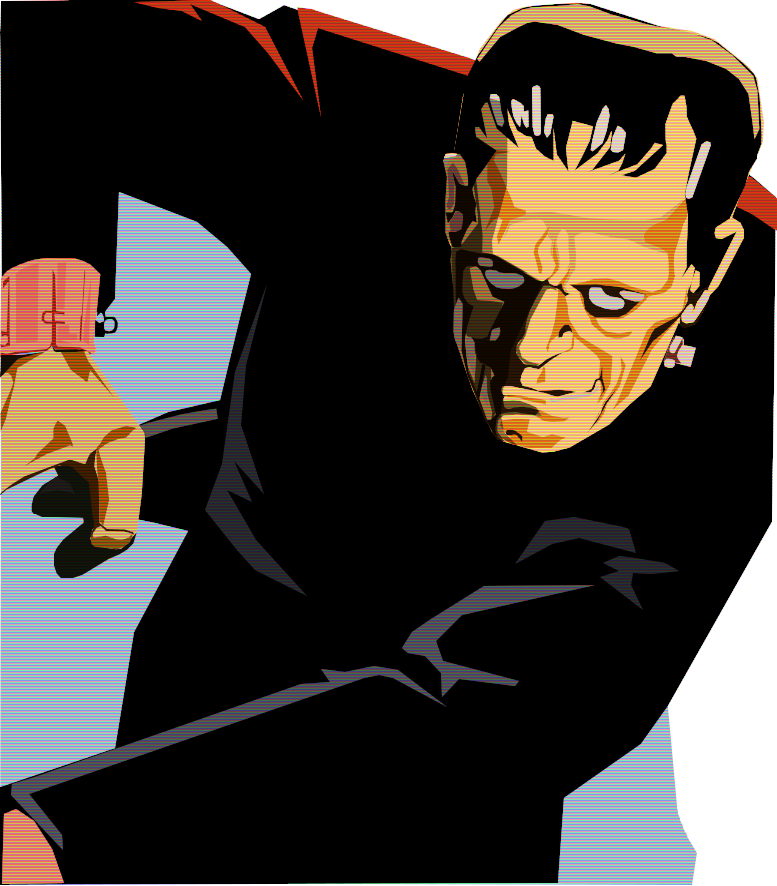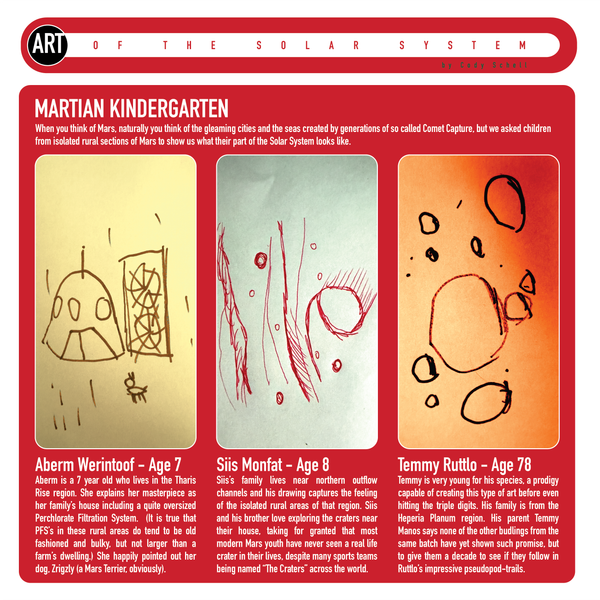A Personal History of Horror Films in 101 Quirky Objects #31 - Flaming torch in Frankenstein (1931)

by Vince Stadon
“Have you never wanted to do anything that was dangerous?” – Henry Frankenstein
Henry Frankenstein is an asshole. He’s not the worst asshole in Frankenstein, a film populated by assholes, but he’s up there near the top. Before we look at this gallery of jerks, I’d like to exclude the not-assholes:
- Elizabeth, Henry’s fiancée, is a sweet young woman, deeply in love with her betrothed and desperately worried for him.
- Little Maria is a sweet little girl who befriends the “monster” and who is unintentionally murdered by the creature when he throws her in the river like the flowers they’ve been floating together. He doesn’t know she won’t float. I don’t know who I feel the sorriest for.
- Maria’s dad, grieving for his murdered child, carrying her sodden corpse in his arms as he walks through the town square. He is toweringly dignified in his grief and isolation.
- The staff at the Frankenstein house are dutiful and clearly fond of Henry, Elizabeth, and the old baron. There is a gaggle of housemaids coming and going and making everything right for the big wedding; sometimes Frankenstein feels like a gothic version of Downton Abbey. And I’m here for it.
- The “monster.” Having produced an unexpected runaway hit movie in Dracula (1931), released as a strange dark romance on Valentine’s Day and which basically saved the studio from bankruptcy, Universal wasted no time in rushing out another supernatural Gothic horror film and got Frankenstein into movie theatres in late November of the same year. Quite remarkably, Frankenstein was written, filmed, edited, and released within six months, and somehow every decision made by the studio was the right one, particularly the hiring of Director James Whale and his lightning-in-a-bottle casting of Boris Karloff. Whale, an openly gay Englishman who started in theatre, had a wicked sense of humour and an understanding of what it felt like to be an outsider: both these things he employed to tremendous effect in Frankenstein. Karloff, another Brit, was a bit-part actor often cast as untrustworthy foreigners because of his dark looks. The two men invested the “monster” with a childlike innocence and genuine pathos, meaning that the “monster” is entirely sympathetic and completely fascinating, aided in no small part by Jack Pierce’s inspired and iconic makeup and costume design. The “monster” feels to me to be a creature of death: I can smell the rotting flesh and dirt from the grave. It unsettles me because it is the definition of uncanny: something unnatural and “other” that resembles something familiar. The creature has been burdened with an “abnormal brain,” and unlike the erudite renaissance philosophical creature from the extraordinary source novel, it does not develop beyond a rudimentary intelligence. And yet it is also somehow beautiful. It is a new thing, a unique creation, forged not by the breath of God but by the madness of men. I am completely beguiled by it.
That’s it for the not-assholes. Here are the assholes in Frankenstein, in reverse order of assholery.
- Dr Waldman, Henry’s teacher, who seems like a well-meaning sort, but who nonetheless thinks nothing about destroying the “monster”—a living human being, remember—because it’s a “mistake.” Best to burn all of Henry’s research, kill the “monster,” sweep everything under the carpet, and forget all about it all, ethics be damned! Dr Waldman is killed by the “monster,” and I can’t say it bothers me much.
- Victor Moritz, Henry’s best pal, who is besotted with Elizabeth and doesn’t bother to hide it. He paws at her, flirts with her, ignores her concerns, and behaves like a selfish asshole who can’t control his feelings. If he was alive today, Victor would be on 4chan, blaming his misogyny on Elizabeth for rejecting him.
- Henry Frankenstein. I must tread carefully here because Henry clearly has mental health issues—it’s explicitly stated several times that he is exhausted, obsessed, and on the brink of a breakdown—and I sympathise with him. I have mental health issues, and I can get obsessive (I spent an entire year consuming every version of The Hound of the Baskervilles in every medium), and I think society (and men in particular) should be more honest and open about mental health. But that doesn’t excuse all of Henry Frankenstein’s behaviour. I’m with Henry F on a lot of things: his quest to understand everything and anything; his ambition to dare to challenge God, to understand what it feels like to “be God” by bringing life; and his aesthetic tastes in laboratories with apparatus rigged to raise an inanimate corpse high up into the ramparts so that it might be struck by lightning during a ferocious storm. I mean, that’s a whole new level of cool. That laboratory set is one of the greatest pieces of production design ever put on film. It’s phenomenal and almost steals the movie. Anyway, I dig Henry quite a bit (and I think Colin Clive is sensational in the part and should have been nominated for an Oscar). I can’t get behind Henry’s ghoulish bodysnatching activities, even if I adore the graveyard set, especially the statue of death, skeletal hands on the hilt of a sword: I think I want that for my own gravestone. Amusingly, Henry and his assistant Fritz steal a body minutes after the gravediggers finish the burial (and Fritz of course does most of the digging), and then, when they’re carting the stiff back to the laboratory, they stop to cut down a hanged man (Fritz of course is tasked with climbing the gallows), though Henry considers this corpse unsuited for his purposes. Henry’s biggest asshole moment comes when he demonstrates that he does not give two shits about his creation and gladly participates in a hunt that ultimately sees the wretched creature burned to death in as windmill. Then he happily gets married. Champagne all round, big smiles. Not a word about all those murders. Asshole.
- Fritz the hunchbacked lackey who understandably seems to hate his job. Bossed about by his master at every turn without a word of thanks, Fritz is the lowest status character in the film. Even the “monster” is treated with more respect, at least initially. Employed by the son of a baron to do just about anything, such as digging up corpses and breaking into to laboratories to steal brains in jars, Fritz has a terrible time of things. God knows how much he was being paid, but it wasn’t enough. His duties should have been more clearly defined and entirely within the law. I think too that he should have been in a Hunchbacked Assistant to a Mad Scientist Workers Union, so that he would have been protected legally and given much more personal time off, yearly wage increases, and Christmas bonuses. I think all that is true whilst also thinking that Fritz is a major asshole because he tortures the “monster.” He gleefully thrusts a flaming torch into the creature’s face, knowing that it will cause great distress. And he uses a bullwhip to lash the “monster.” I don’t know where he got the bullwhip—perhaps it had been used on him—but he enjoys using it. Quite simply, he is an asshole sadist bully, the worst of the assholes in Frankenstein, and I cheer every time he is murdered (though it’s off screen; we instead hear his death scream and then see his body hanging from the rafters, and we understand that, satisfyingly, the “monster” has turned the tables and killed his abuser). Fritz is played by Dwight Frye, who was brilliant as the lunatic Renfield in Dracula (1931), and he’s not given enough credit for creating back-to-back stand-out performances in two of the greatest and most influential horror films ever made. Dwight Frye would be back as a mad scientist’s much-put-upon asshole assistant, this time named Karl, in Bride of Frankenstein (1935). It’s not until Son of Frankenstein (1939), the third film in the series, that we get an “Ygor,” the name most associated with this stock character. Bela Lugosi is outstanding as the cunning, murderous hunchback who befriends the “monster” and indeed for completely nuts plot purposes has his brain put into the body of the creature at the completely nuts conclusion of the completely nuts The Ghost of Frankenstein (1942).
- Outraged Mob of Angry Villagers with Flaming Torches. I’ve often argued that any film would be improved with an Outraged Mob of Angry Villagers with Flaming Torches, particularly Rocky (1976). A riled-up, unthinking posse of knee-jerk reactionary assholes is guaranteed to make any situation worse (see Brexit), which is absolutely what you need in the final act of a Gothic horror film. All the better, of course, if this moronic vigilante throng is armed with pitchforks and flaming torches. I don’t know where they get those flaming torches. Perhaps there’s a village store. I don’t know how you’d sign up to participate in the mob: perhaps you need to take an IQ test, and if you can demonstrate that you’re a complete idiot with no ability to reason or understand, then you get to join up and are given your first flaming torch. Frankenstein has the very best Outraged Mob of Angry Villagers with Flaming Torches of any movie. There’s so many of them! It’s a proper mob. I did note with amusement that one or two of the torches weren’t flaming. Perhaps they’d gone out. Perhaps the outraged idiots carrying them were so idiotic that they couldn’t be trusted with live flames. We all know people like that. They’re assholes.
~
More obvious picks for an object to represent this film: “abnormal” brain in jar; the Tesla coil; the operating table; the neck bolts
Frankenstein (1931); 70 mins; US
Directed by James Whale; Written by Garrett Fort, Francis Edward Faragoh (based on Frankenstein or The Modern Prometheus by Mary Shelly); Produced by Carl Laemmle Jr.; Cinematography by Arthur Edeson
Colin Clive (Henry Frankenstein); Mae Clarke (Elizabeth Lavenza); John Boles (Victor Moritz); Boris Karloff* (“The Monster”); Edward Van Sloan (Dr Waldman); Frederick Kerr (Baron Frankenstein); Dwight Frye (Fritz); Lionel Belmore (The Burgomaster); Marilyn Harris (Little Maria); Michael Mark (Ludwig)
* Karloff was credited as ‘?’




